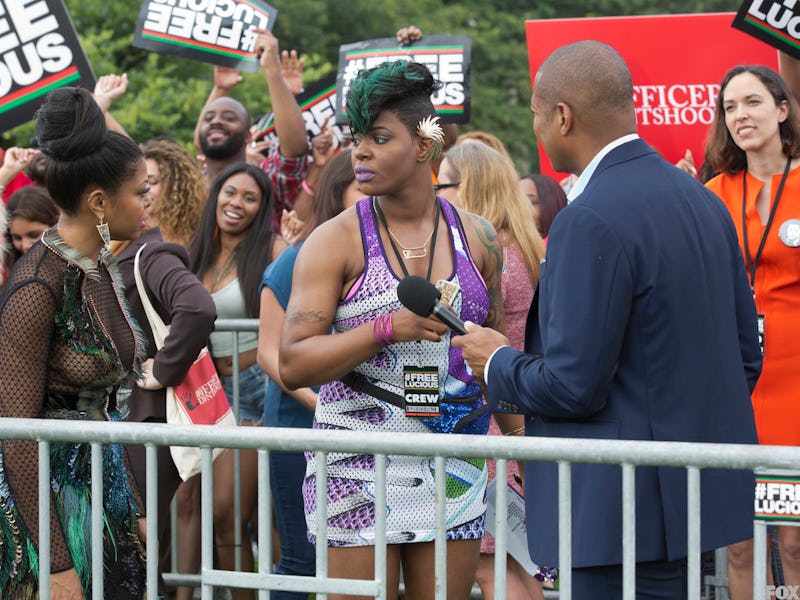'Empire' and It's Light Touch With Black Politics
The hit show 'Empire' is back and dives right into the pressing concerns of the black community.

Blackness is at the forefront of the American consciousness. Obama is staring down his final months as the nation’s first black president, while racial tensions are more pronounced than when he entered. And right now one of the biggest shows on television returns ready to try and tackle these sorted politics.
Empire, which premiered its second season last night, is not a show that is very much interested in interracial dynamics —even if there is an implied interracial lesbian affair in the closing minutes. This isn’t a show about “people of color.” The show centers around black people handling matters with other black people. A primetime slot devoted to a show that can let jokes and references fly by in a breeze that clearly show this is a show that doesn’t mind leaving behind those not already versed in 2015 black conversations.
Cookie offers a quick chat to Al Sharpton before dismissing him once he can’t help her; Porsha disses Don Lemon for his coverage of “Peterson,” which Cookie quickly corrects her mistake of meaning “Ferguson” and tells Lemon the he did a good job, but then turns to agree with Porsha that his coverage was fucked up.
That small exchange caught so many shades of the black reactions to politics the last year: righteous ignition at inequality, a cold business-like appeasing on the camera, and the more complicated shaming of CNN — not to just call out Don Lemon — with the framing the events of Ferguson, Baltimore and other moments of black uprising. The images of burning buildings for some are the right response to systemic injustice, others saw it as a senseless chaos and Empire caught the 180 degree turns black people often must make in these moments.
All of this was framed outside of a concert that was supposed to be supporting the freeing of Lucious Lyon, who sits behind bars for murdering Cookie’s cousin Bunkie. Even though the family knows Lucious committed the murder, Cookie stood in front of the crowd descending down from a cage in a monkey suit to shout down the prison industrial complex that’s torn apart black families, while in the crowd there are signs like #officerdontshoot that is a clear facsimile of #blacklivesmatter. In a way, the discomfort that all of them display over asking for the freedom of Lucious is a squeamishness not often seen by artists that make these similar chants or the fans that quickly parrot such rhetoric. It’s not that the fight for black lives isn’t worth the fight, but looking within the community and wondering if this is the right one.
The member of Empire Records are not the kinds of black people that can be explicitly political. Jamal’s coming out excluded, their personal politics are kept out of the public, even if their public persona of a family is what gives them such wealth. The amount of power at their fingertips precludes a certain amount of blackness they’re able to show. They can speak out about social injustices that are directly tied to their family, but veer too far and they risk alienating potential investors, potential buyers of their music and products.